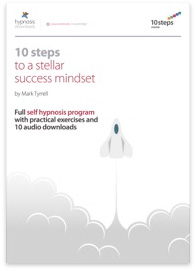What Does 'Achieving Your Potential' Really Mean?
7 steps to help you become who you really are
 "Find your wings and use them to achieve your potential" courtesy of gradin
"Find your wings and use them to achieve your potential" courtesy of gradin"You are not meant for crawling, so don't.
You have wings. Learn to use them, and fly."
~ Mevlana Jelalu'ddin Rumi, 13th century Sufi Mystic
Having left school at 14 to work as a bellboy at The Mount Wilson Hotel, he later became employed as a mule driver, transporting astronomical equipment up to the famous observatory.
Milton Humason then managed to become a janitor at the observatory, where he worked with Edwin Hubble. Humason asked another astronomer to teach him mathematics in his spare time. Gradually, he learned about the photographic equipment used by the astronomers for delving into the nature of the stars.
He rose to the role of photographic assistant, then assistant astronomer. When Hubble discovered the existence of other galaxies beyond our Milky Way and the expansion of the universe, he was keen to assign some of the glory to Humason.
He'd been a lowly mule driver - he helped us know our place in the universe.
He had been the right person at the right place in the right time; an important point, this.
We all have varying potential
To achieve its potential - some might call it 'destiny' - a blade of grass needs to be in the right place (decent soil) at the right time (not during a drought). This is what a blade of grass or a flower can do. Plant a person in the earth and pour water on him, and he won't grow because it is not the right potential for him.
There is such a thing as personal predisposition. The idea that 'you can be anything you want to be' flies in the face of observation and is a trap. Why? Because the world has sprinkled within it different types of people - and that's a good thing. Our blade of grass isn't going to do well in a math class, however 'positively' we think about that.
The 'anyone can be anything' trap
To believe that everyone can be anything they choose is like saying that the 'ugly duckling' could have become a genuine duckling had he tried hard enough, instead of the swan that he truly was. We are not all going to run as fast as Usain Bolt or penetrate the secrets of the universe with the deftness of Einstein (or Hubble) or fulfil the ideal of socially defined standards of physical beauty.
No, the real secrets to achieving your potential are much more interesting than the 'all you have to do is believe' propaganda that we've been fed in recent years that, paradoxically, may block us from personal fulfilment.
To achieve your potential, you need to develop a sense of what you are naturally like so that you can focus in areas that accord with your innate interests, nature, and strengths. This prevents you wasting time by trying to be a duckling when you are really a swan.
Having said that, I don't want to limit you by describing what 'potential' might mean too narrowly. Who knows the extent to what is possible for men and women in a spiritual sense? But for the purposes of this piece, it's useful to define 'potential' as constructive progression to fulfilling your innate abilities, gifts, and talents.
What's your specific potential?
When we talk of 'achieving potential', it's easy to be so vague as to what these words mean as to render our discussions meaningless. People might nod sagely to one another without having the slightest idea as to what 'potential' might actually mean for practical purposes. So my first tip on achieving potential is to define our use of the word.
1) Achieve your potential by knowing in which direction you travel
Ideas around potential need to be specific. Rather than thinking: "I want to achieve my potential!" - which sounds worthy, but is so vague as to leave you glued to the starting blocks of life, think rather: "I want to become the greatest therapist/sculptor/writer/__________ I can become!"
The words 'achieving potential' are merely fluff unless they are attached to specifics!
2) Learn to disregard popular opinion
Ever heard of the 'Bannister Effect'? Before 6 May 1954, it was thought 'impossible' to run a mile under four minutes. But on that date, Dr Roger Bannister ran a mile in three minutes and 59.4 seconds. He wasn't really supposed to do that.
However, it wasn't the physical barrier, but the psychological one we refer to when we describe the 'Bannister Effect'. In the 12 months after his historic run, 37 more runners broke the four-minute mile, and in the 12 months after that, another 300 did it. All athletes who presumably could have run that fast before Bannister's run!
Learn to forget about what other people see as impressive, great, or even beyond the limits of what can be achieved. Focus on what you really feel you want to do and have potential for, and remember the Bannister effect and how it can be little more than a limiting popular delusion.
My next tip extends this idea.
3) Push the boundaries
Remember it's not just your potential you need to consider, but the potential of a situation. All situations you enter have a potential that you can help realize.
I'm not suggesting you start breaking laws, but if we are too eager to please others and 'fit in' with public expectations, then we'll never reveal or discover what a situation (be it a business venture, social gathering, or garden design) might actually yield. Play with ideas - push them to their extremes sometimes; go a little further to see what's possible.
All progress is made by 'unreasonable' people.
4) Achieve your potential by cultivating curiosity and fascination
When you are truly fascinated by something and intrigued by how far you can take it, you don't have to divert time or energy desperately 'believing in yourself', because your focus is not on you, anyway. For example:
Signs that say a writer has achieved their potential may be that:
- They get published
- They are read widely.
You could argue that writing might be excellent and not widely read, but this is just for illustration. To have a chance of reaching their literary potential, our diligent writer needs to be able to forget about end results and focus down on the actual writing.
If they spend all their time thinking about getting published and read or 'fulfilling their potential as a writer', then where is the focus and space in their mind for actually writing?
Get used to forgetting about 'fulfilling your potential' when you are actually engaged in doing what you do. Fulfilment of potential is a by-product of the right kind of effort and focus.
5) Remember: Right time and place
At the start of this piece, when talking about former mule driver Milton Humason, I said that he was the right person in the right place at the right time.
It's a strange thought that the person with the greatest potential for computer programming may have lived thousands of years ago. We don't know. The woman with the greatest innate potential for brain surgery and research may be about to be born into an as-yet-undiscovered tribe living in the Amazon rainforest. Time and place may work against people. But it's not just down to chance.
During the Renaissance, some people who showed potential in painting, sculpture, and architecture went to live in Florence, Italy - 'where it was at' at that time. With the Internet, we can find the right people and place (whether that's geographical or virtual) to help harness and develop our interests and skills.
If you're the right person, then make a point of finding the right time and place to fulfil your potential. And if you are ahead of your time, then it's down to you to instigate new trends in thought or action. Someone had to start the Renaissance.
6) Clear your way for potential to grow
We all have basic needs for water, food, and shelter. If these needs are not met, then all your focus will be on fulfilling these 'primal needs' at the expense of your potential in other areas.
You also have emotional needs that may be less easy for you to identify. For example, you and everyone alive have needs for human interaction, feelings of security, a sense of connection to community, a need to feel intimate with at least one other person, needs to feel interested and stimulated by life, and many others.
If you are chronically frightened and don't feel safe, or are constantly trying to get enough attention because your social life is off-balance, then energy you could be using for fulfilling your potential will have to be diverted (consciously or unconsciously) toward meeting these basic emotional needs.
Your energy and time are finite. People may waste a whole lifetime in the search to satisfy one or more primal emotional need at the expense of potential progress in other areas.
Get what you need in terms of emotional fulfilment in order to free up space to focus elsewhere. Your whole life shouldn't merely be a search for emotional security or excitement or intimacy. These needs should be met so that you don't have to think about them all the time. And of course, realizing some of your potential will meet some emotional needs, as well.
7) Remember your potential may be infinite
People talk about 'reaching their potential', but how many people tell you they have actually reached their potential? "Hi, my name's Bob. I've reached my full potential. That's it, I'm done now!"
Remember, all apparent fulfilment of potential is a step - not an ultimate destination. Too much self-satisfaction and the feeling that we know all there is to be known or can do all there is to be done may effectively leak away further progress. We are always learning, always developing, and always (if we are wise) working to realize our potential.
10 Steps to a Stellar Success Mindset course
Let hypnosis drive success habits deep into your unconscious mind...







